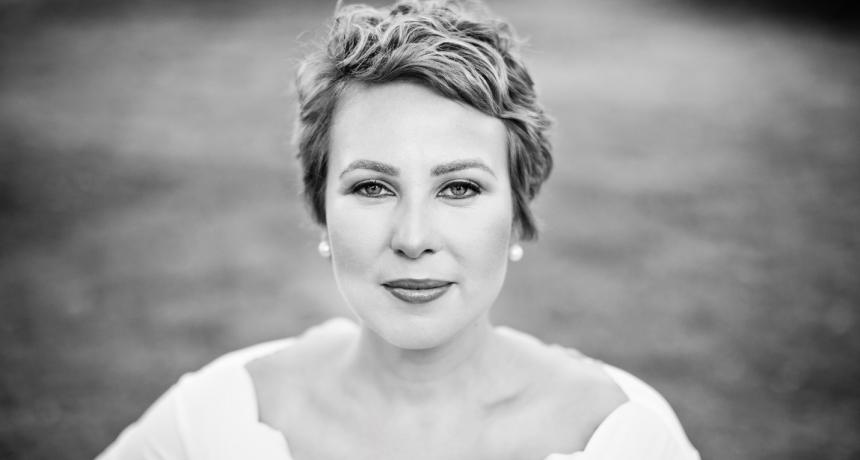This article was originally published by I Had Cancer.

After the initial shock of my diagnosis wore off, I became focused and motivated. I decided that although cancer would rob me of my hair, and my breasts, I would choose how I would approach this battle – I choose strength and positivity. Fueled by this positive outlook and the love from friends and family surrounding me, my husband and I managed to make it from week to week focused on each individual hurdle. The appointments gave us purpose — something to do, somewhere to go, and something to focus on. Cancer care was our number one priority and my goal was to survive. Everything else faded into the background.
I was allowed a short respite from my despair. The celebrations ensued — cake, wine and lots of happy tears. No sooner had the celebration ceased, than my cloud of despair returned. As celebration and success melted away, all that remained was grief. I grieved for the body I lost, my innocence destroyed, and the future I once took for granted. I began to struggle to complete my daily routines and started to avoid social situations I previously enjoyed. My fear of the future controlled me. All I could think about was the cancer returning, dying and leaving my husband alone. I had no idea how to find purpose and meaning as I re-entered my life.
The weight of these feelings was greater than any shock and fear I experienced during treatment.
The worst part was that now I felt embarrassed and alone on top of the feelings. Though doctors, nurses and other survivors had warned me of the likelihood of post-treatment depression, I was shocked nonetheless. Having experienced depression before, I recognized these feelings, but I still felt unable to discuss them with my friends and family. I was fearful they would not understand, or would judge me. I somehow felt it was my fault — guilty that I was not happier. I felt a sense of pressure that I should be out celebrating being alive. Sadly, all I wanted to do was lay in bed and cry. It seemed as if everyone else had moved on and I didn’t see how I could fit back into their lives.
I was left adrift, floundering to find my way, while everyone else thought I was done with cancer.
While many cancer survivors struggle with these feelings of depression for long periods of time, I feel lucky to have recognized the signs early and knew how to seek help. I immediately turned to my cancer center and found a counselor who was able to provide me with a valuable sense of understanding and reassurance. In conjunction with the counseling, I also began a low dose of anti-depressants, which helped ease the intensity of the feelings I was struggling with. The anti-depressant also helped me sleep. As my energy began to improve, I was able to join a fitness program (also through my cancer center). This brought me a new sense of confidence and lifted my spirits. Spending time outside in the fresh air and having a regular routine helped me find some sense of purpose and improved my mindset. I set small milestones for myself and tried to stop and celebrate successes frequently. I tried to practice the same level of patience for myself that I would offer a close friend.
It brought me joy to see the rebuilding of health and strength, despite the slow pace. I continued journaling regularly and expanded my work in self-compassion. After about 2 months of focused interventions I really began to feel like myself again. Now, looking back after a year of mental recovery, it’s hard to believe I was ever in such pain. I am happier now than I ever was pre-cancer with new avenues of purpose and joy in my life. While I still have days that are consumed by fear, they are few and far between.
I am stronger for the battles I fought and no matter what physical and mental battles I will face in the future I now know I can overcome.
While it is hard relive the pain through writing, I believe that sharing my story will help remove the stigma surrounding depression and bring hope to those caught in a similar cloud of despair. 15-25% of people diagnosed with cancer also suffer from depression (MD Anderson)
Many patients may actually mistake their symptoms of depression for lingering after effects of treatment (ex. fatigue, loss of pleasure/interest, weight gain/loss, sleeping problems, and decreased concentration). Unfortunately, depression cannot be ignored until it goes away. Usually the intensity of the feelings will worsen and you may withdraw further from those around you.
Don’t wait for things to get worse; it’s not your fault.
Instead of focusing on how bad you feel, treat this mental battle just as you did your cancer treatment. Take action! Seek out a counselor who has worked with cancer survivors before to help you make sense of your feelings and identify tools for relief. Start a new routine, specifically one involving some kind of physical activity with a sensory component. Sensory experiences can trigger a change in your mental state and provide relief from the overwhelming feelings. Talk to loved ones about your feelings – allow them a chance to support you. You may be surprised by their kindness and compassion. The counselor can also help you find ways to communicate with those around you about your depression. Lastly, if none of these tools help, don’t be embarrassed to take advantage of medication. I can tell you from the other side that your life is just waiting for you to make it past this last hurdle.
Are you struggling with depression after cancer? Share your experiences in the comments below. If you need to talk to a professional, The Cancer Support Helpline can help. Call 1-888-793-9355 now.

2 Comments